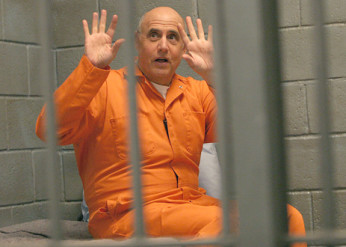By: Brandon Bybee,
What does a drug dealer deleting text messages off of his phone have in common with an international corporation failing to retain emails regarding a business transaction? Interestingly, both may fall under the application of certain provisions of the Sarbanes-Oxley Act. While many assume that Sarbanes-Oxley only applies to businesses (and some believe exclusively publicly traded companies,) specific sections pertaining to criminal activity apply to not only private companies, but in recent court decisions individual citizens.[1]
Sarbanes-Oxley was enacted in 2002 as a result of the corporate scandals of 2001 and 2002 (Enron and WorldCom). The act was passed by Congress to “deter and punish corporate and accounting fraud and corruption.”[2] Contained within the act under Title VII is §1519, commonly referred to as the anti-shredding provision. This provision makes it a criminal act to destroy or conceal, “…any record, document, or tangible object with the intent to impede, obstruct, or influence the investigation or proper administration of any matter within the jurisdiction of any department or agency of the United States…”.[3] §1519 violators can be fined and imprisoned up to 20 years for what has been deemed as an act of anticipatory obstruction of justice.
While the application of §1519 to corporations concealing documents seems an obvious utilization of the statute, perhaps a more difficult application to anticipate would be charging an individual citizen. In the case of United States v. Keith[4] the FBI determined that the defendant had been utilizing the Limewire downloading interface to search for and download child pornography. As agents approached the defendant’s home he deleted some of the illegal materials that he had downloaded. Among other charges, he was found guilty of violating Sarbanes-Oxley §1519 for anticipatorily obstructing justice by deleting the files. Since the case was under investigation by the FBI this constituted a “…department or agency of the United States…”[5]. The defendant was sentenced to 240 months in prison. This case exemplified the broad application of §1519, even to individual private citizens.
Additional recent applications of §1519 have included an attempt to convict one of the alleged conspirators of the Boston Marathon Bombings.[6] The alleged defendant is accused of deleting pertinent material from his computer relating to the planning of the bombings. Among other illegal actions prosecutors are attempting to charge the conspirator with a violation of §1519. On multiple occasions police officers have been charged with violating §1519. In United States v. McRae[7] a police officer was charged under §1519 for burning a car and a victim’s body as well as falsifying a police report. In United States v. Moyer[8] another police officer was charged for falsifying a report.
An even more popular recent newsworthy issue has brought §1519 into the national spotlight. The Hillary Clinton email deletion scandal has brought §1519 into play as any charges that would be brought against her by the state would likely include an anticipatory obstruction of justice charge.[9] (No charges have been brought against Mrs. Clinton.) Even if former Secretary Clinton deleted files exclusively from her personal computer §1519 has been shown to extend to private citizens.
Finally, and perhaps most disturbingly, some circuits have found that there is no need to establish a connection between the deleting of data or destruction of evidence and the knowledge of a possible criminal investigation in the future. United States v. Moyer[10] asserts that §1519 does not require the government to prove that the defendant knew the obstruction at issue was within jurisdiction of federal government, nor is the government required to prove nexus between defendant’s conduct and specific federal investigation. By asserting that the government need not define a correlating nexus between the defendant’s conduct and a specific federal investigation the case broadens the application of §1519 once more.
What does this mean for the typical American citizen? Essentially, any document, digital file, or tangible item that could be involved in an investigation by a government agency at any time should not be destroyed. If the item is destroyed, technically an individual could be charged with an anticipatory obstruction of justice. While it seems likely that the application of §1519 would only apply to those who knowingly engage in criminal activity, the broad nature of its utilization does bring cause for concern of anyone in possession of large amounts of digital files. It will be interesting to see how broadly the court systems allow the application of §1519 to extend.
[1] See generally Robert F. Mechur, Esq., Yes, Sarbanes-Oxley Applies to Private Companies. Boylan Code Law Library: Articles, http://www.boylancode.com/news-knowledge/articles/62-yes-sarbanes-oxley-applies-to-private-companies; United States v. Keith, 440 F. App’x 503 (7th Cir. 2011).
[2] Christopher R. Chase, To Shred Or Not To Shred: Document Retention Policies And Federal Obstruction of Justice Statutes, 8 Fordham J. Corp. & Fin. L. 721, 740 (2003) citing President’s Statement on Signing the Sarbanes-Oxley Act of 2002, 38 Weekly Comp. Pres. Doc. 1286 (July 30, 2002); David S. Hilzenrath, Anderson’s Collapse May Be Boon to Survivors, Wash. Post, Aug. 24, 2002, at E01 (stating that that passage of the law was in response to the accounting scandals).
[3] Sarbanes-Oxley Act 18 U.S.C.S. § 1519 (2002).
[4] United States v. Keith, 440 F. App’x 503 (7th Cir. 2011).
[5] Sarbanes-Oxley Act 18 U.S.C.S. § 1519 (2002).
[6] United States v. Tsarnaev, 2014 U.S. Dist. LEXIS 134596 (D. Mass. Sept. 24, 2014).
[7] United States v. McRae, 702 F.3d 806 (5th Cir. 2012).
[8] United States v. Moyer, 674 F.3d 192 (3d Cir. 2012).
[9] See generally Ronald D. Rotunda, Hillary’s Emails and the Law. The Wall Street Journal (September 17, 2015 10:15 AM) http://www.wsj.com/articles/ronald-d-rotunda-hillarys-emails-and-the-law-1426547356.
[10] United States v. Moyer, 674 F.3d 192 (3d Cir. 2012).
Photo Source: http://www.davidicke.com/wp-content/uploads/legacy_images/stories/August20117/feds-destroyed-evidence-of-thousands-of-wall-streets-worst-financial-crimes-290×206.jpg
Photo Source: http://i2.listal.com/image/1913832/600full-arrested-development-screenshot.jpg


